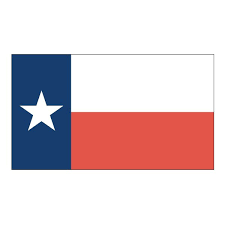Is Marijuana Legal in Texas? Not Quite. But, it’s come a long way since pothibition started in Texas in 1931. Texas was the first state to impose penalties for pot possession and, over the decades, created the most draconian cannabis laws on the books.
Reforms have been slow to come, but, finally, are starting to gain momentum at the City, County and State levels.
The State of Cannabis in Texas
This table shows progressive and positive changes in cannabis law in Texas since 2017
| DATE | JURISDICTION | ACTION | DETAILS |
|---|---|---|---|
| 2017 | Dallas, City | • Cite-and-Release | In April 2017 the Dallas City Council voted 10–5 to adopt a cite-and-release policy for possession of less than 4 ounces of cannabis. In October 2017 county commissioners 4–1 voted to approve the plan, and it went into effect in December 2017. |
| 2017 | Bexar County | • Cite-and-Release • Diversion | In September 2017, Bexar Country District Attorney Nico LaHood announced a new cite-and-release policy for persons caught with less than 4 ounces of cannabis. The program also allowed cited individuals to avoid criminal charges by attending a class, paying a fine, and performing community service. The policy went into effect for the Bexar County Sheriff's Office in January 2018. |
| 2017 | El Paso County | • First Change Program | In October 2017, El Paso County commissioners voted unanimously to allow people caught with less than 4 ounces of cannabis to pay a $100 fine and perform 8 hours of community service in lieu of facing criminal charges. Named the First Chance Program, it only applies to people that are not caught with any other drugs. |
| 2017 | Travis County | • Diversion Program | In December 2017, Travis County commissioners unanimously approved a plan to allow persons cited for less than two ounces of cannabis to take a four-hour educational course (at the cost of $45) rather than being subject to criminal charges. The policy went into effect in January 2018. |
| 2019 | Dallas County | • Limited Enforcement • Diversion | In April 2019, Dallas County District Attorney John Creuzot announced that individuals caught possessing misdemeanor amounts of cannabis would no longer be prosecuted for first-time offenses. Individuals who commit subsequent offenses would be offered diversionary courses to avoid a criminal conviction. |
| 2019 | Bexar County | • Expanded Cite-and-Release • Limited Enforcement | In May 2019, Bexar County District Attorney Joe Gonzales announced that an expanded version of cite-and-release would be implemented during the summer and apply to San Antonio Police Department as well.[54] Additionally, Gonzales announced that his office would no longer prosecute possession of less than one ounce of cannabis. |
| 2020 | Austin, City | • Depenalization | In January 2020, Austin City Council voted 9–0 in favor of a resolution that effectively eliminates penalties for possessing up to 4 ounces of cannabis and directs the city manager to "take the steps necessary and appropriate to eliminate, to the furthest extent allowable under state law ... the use of arrest or other enforcement action for cannabis-related possession offenses". In July 2020 Austin Police Department announced that it had revised its enforcement policies to comply with the resolution. |
| 2020 | El Paso, City | • Cite-and-Release | In May 2020, El Paso City Council voted 7–0 to adopt a cite-and-release policy for possession of less than 4 ounces of cannabis. The measure directed the city manager to devise a plan to put the policy in effect by September 1. |
Medical Cannabis in Texas
 Medical cannabis is legal in Texas in very limited circumstances. Texas Governor Greg Abbott signed the Texas Compassionate Use Act into law in 2015, allowing people with epilepsy to access cannabis oil with less than 0.5% THC. Last year, he signed House Bill 3703, which expanded the list of qualifying conditions to include diseases such as multiple sclerosis, Parkinson’s disease and Lou Gehrig’s disease, or ALS.
Medical cannabis is legal in Texas in very limited circumstances. Texas Governor Greg Abbott signed the Texas Compassionate Use Act into law in 2015, allowing people with epilepsy to access cannabis oil with less than 0.5% THC. Last year, he signed House Bill 3703, which expanded the list of qualifying conditions to include diseases such as multiple sclerosis, Parkinson’s disease and Lou Gehrig’s disease, or ALS.
Hemp Yes, Cannabis No
Since Cannabis and Hemp are often indistinguishable by look or smell because they both come from the cannabis plant. The difference amounts to how much of the psychoactive compound THC, or tetrahydrocannabinol, they contain.
Texas now says that cannabis (plants or its derivatives) with a THC concentration of more than 0.3% is considered illegal but if the substance has less than 0.3% THC, it’s considered hemp.
What To Do Until Marijuana is Legal in Texas
If you’d like to learn more about Cannabis, visit Happy Travelers Tours in the heart of Northern California’s Wine-and-Weed Country and Book one of our up-close-and-personal Tours with Cannabis Plants!